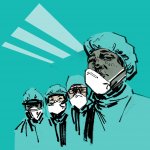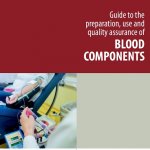
News • Matchmaking at Medica
The networking plaza for YOU!
Easy to use and absolutely accurate: our intelligent matchmaking tool will revolutionize the way you connect with potential new contacts before, during and after the trade fair runtime.

Easy to use and absolutely accurate: our intelligent matchmaking tool will revolutionize the way you connect with potential new contacts before, during and after the trade fair runtime.

An up-and-coming gene therapy for blood disorders. A new class of medications for cystic fibrosis. Increased access to telemedicine. These are some of the innovations that will enhance healing and change healthcare in the coming year, according to a distinguished panel of clinicians and researchers from Cleveland Clinic. In conjunction with the 2020 Medical Innovation Summit, Cleveland Clinic…

Medica 2020 and Compamed 2020, the information and communication platforms for the medical technology industry and supplier industry for the medical technology industry, will take place entirely online from 16 to 19 November. Within the framework of 'virtual.Medica' and 'virtual.Compamed', decision-makers from all sectors of the healthcare industry can then expect a comprehensive range of…

Taiwan, 15-17 October – A physical international exhibition and “virtual trade show” hosted by the Taiwan External Trade Development Council (TAITRA) will run as scheduled at Taipei Nangang Exhibition Center. ‘With both featuring exhibits at three-dimensional (3-D) booths simultaneously, Medical Taiwan will be a perfect online/offline platform that pulls exhibitors and buyers together and…

Radiometer renews its commitment to the fight against sepsis—one of the world’s deadliest diseases—and is proud to continue as sponsor of Global Sepsis Alliance.

The healthcare system of Taiwan, renowned for its ability to tackle challenges, has held up very well during the COVID-19 pandemic. To underline the nation’s role as a healthcare innovator, the Taiwan External Trade Development Council (TAITRA) presented several of the most promising companies and their products in an exclusive webinar. The event showcased cutting-edge technologies as well as…

Generous donations made by companies and individuals funded seven state-of-the-art isolation pods for COVID-19 patient transport in Greece. The Greek ambulance service, EKAB, acquired seven top modern isolation pods, known as EpiShuttle, from the generous donations made to them.

Royal Philips announced that it has signed an agreement to acquire Intact Vascular, Inc., a U.S.-based developer of medical devices for minimally-invasive peripheral vascular procedures. Intact Vascular will enhance Philips’ image-guided therapy portfolio, combining Philips’ interventional imaging platform and diagnostic and therapeutic devices with Intact Vascular’s unique, specialized…

Taiwan has won global praise for its rapid pandemic response and precautionary measures taken to contain the coronavirus (COVID-19) pandemic that emerged earlier this year. This success is testament to Taiwan’s highly efficient public health and medical system, and the excellent quality of MIT (made in Taiwan) products. Medical Taiwan, which takes place from October 15 to 17, 2020 at Taipei…

Cancer informatics and digital pathology solution provider Inspirata announced a commercial partnership with Fujifilm. The partnership enables Fujifilm to supply and service Inspirata’s scanner-agnostic, CE IVD digital pathology workflow software globally and with exclusivity in the UK, Italy, Spain, Portugal, Belgium, the Netherlands, and Luxembourg.

Due to compromised immune systems cancer patients are at higher risk of contracting infections. How does cancer impact on patients who also contract Covid-19? To collect this data, four cancer registries, one in the EU, one in the UK, two in the USA, have been established. The first large, multi-institution study of the impact of Covid-19 was conducted in Wuhan, China, and presented at the…

Making the transition from clinician to a senior hospital management role can prove challenging. Professor Erika Denton did it – whilst also retaining some clinical responsibilities. A radiology background, Denton believes, is a major asset in making the move into high-level management. Currently the Medical Director of the Norfolk and Norwich University Hospital (NNUH) in the east of England,…

Urgent reform of the funding of UK adult social care is needed to save a desperately overstretched system which has now reached breaking point, warn policy experts at the University of Birmingham. The crisis is partly the result of a ‘lost decade’ in which policymakers systematically failed to act on alarms raised back in 2010, say the researchers in a hard-hitting report published in the…

Over the past decade, medicine and technology have needed to join hands to help change people's lives. Today, the healthcare and medical industry has become a huge business worth more than US$158 billion in applications of medical IOT.

Health industry sectors, representing pharmaceutical and medical technology companies (COCIR, EFPIA, EuropaBio, MedTech Europe and Vaccines Europe) welcome the publication of the European Partnership for Innovative Health Proposal as a significant milestone towards a European Partnership for Health Innovation. The future partnership will showcase to researchers, patients, and citizens that Europe…

Chemical binding company Affix Labs has created the first long-lasting surface treatment proven to kill COVID-19. Si-Quat combines a safe and well-established disinfectant and a proprietary chemical binding technique, so that the active ingredient can kill viruses, including SARS-CoV-2. Testing at Portugal’s Biochemistry Institute at the University of Lisbon proves that Si-Quat effectively…

Frost & Sullivan’s recent analysis, Post-Pandemic Global Healthcare Market Outlook, 2020, forecasts that 2020 will be an unforgiving but transformational year for the healthcare industry. As the world grapples with a global emergency caused by the COVID-19 pandemic, the healthcare industry is expected to witness a drop in growth from 5.3% to 0.6% in 2020, with revenues remaining below the…

Physical distancing measures, such as closing schools, workplaces, and public transport, and restricting mass gatherings, are associated with a meaningful reduction in new COVID-19 cases, finds a study published by The BMJ. The data, gathered from 149 countries and regions, also show that implementing lockdown restrictions earlier was associated with a greater reduction in new cases. “These…

Despite its proximity to China, Taiwan contained COVID-19 successfully, without a lockdown or movement restriction measures introduced elsewhere. With few new cases reported, life almost returned to normal. Behind the scenes, however, efforts have continued to maintain that positive situation.

Hospitals can get noisy, especially intensive care units, and the life-saving electronic machines monitoring patient vital signs are making most of the racket. Mike Rayo, an assistant professor of integrated systems engineering at The Ohio State University, is working to improve and organize the cacophony to help caregivers and patients alike. For almost a decade, Rayo has collaborated on…

On May, 29th 2020, European Hospital published a press release from the Plasma Protein Therapeutics Association (PPTA). In that release, the PPTA expressed their concerns about the recommendations contained in the 20th version of Blood Guide of The European Directorate for the Quality of Medicines and Healthcare (EDQM). Read here the EDQM’s rebuttal letter to the PPTA.

Despite being at high risk of exposure to COVID-19, frontline healthcare professionals who were appropriately protected did not contract infection or develop protective immunity against the virus, finds a study from China published by The BMJ.

Austria-based cochlear and hearing implants technology company Med-El has become one of the first manufacturers worldwide, and the first and only hearing implant manufacturer in the world, to be granted European Medical Device Regulation (MDR) certification. The company made an initial announcement on the newly earned certification after making an early commitment to adopt the MDR in 2016. For…

The Plasma Protein Therapeutics Association (PPTA) is concerned about the recommendations contained in 20th version of Blood Guide of The European Directorate for the Quality of Medicines (EDQM) which aims to harmonise standards and recommendations on blood collection, preparation, and the use of blood and blood components. This Guide, if applied, will have a negative impact on the availability…

With so many COVID-19 models being developed, how do policymakers know which ones to use?